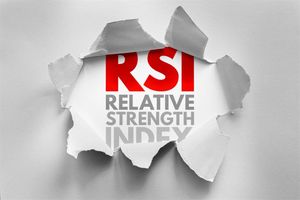Financial News
RUSSIA: The Downfall Of Thriving Businesses
In the aftermath of Russia’s illegitimate invasion of Ukraine, almost 1,000 firms have opted to leave Russia, and this isn’t only bad for their image. The financial markets reward them while penalizing those who fall behind.
Yale Professor Jeffrey Sonnenfeld and his research team at the Yale School of Management say as much in a recent paper. Since the crisis began on February 24, the team has been tracking over 1,300 Russian firms and compiling a list of those that have opted to stay or leave.
We find that equity markets reward firms that leave Russia while penalizing those that stay, with diverging stock performance often correlating to the degree of Russian departure — this holds across geographies, industries, and company sizes,” states the Yale paper.
To make matters worse, the emphasis in Russia on asset write-downs and revenue loss is erroneous. According to research, “we show that shareholder value obtained through stock increases has already greatly outweighed the cost of one-time impairments for businesses that have written down their Russian assets.”
The Yale list is graded A to F, with the latter letter referring to firms that are “digging in,” or defying public calls for them to leave. There are already 29 firms in this category in the United States, and the situation is still changing as corporate executives offer updates on their plans.
A grade of “withdraw” indicates that a company has severed all ties with Russia; B indicates “suspension,” which means a company is temporarily curtailing operations while keeping the option of returning; C indicates “scaling back,” which means reducing some activities while maintaining others; and D indicates “buying time,” which means a company is delaying new investments in Russia and, in many cases, Belarus.
Companies that have left Russia have had lower overall shareholder returns than those that have remained, as measured by the findings of this paper. Since Russia launched its full-scale invasion overnight on February 23rd, researchers began their work on that day.
The Yale team was up against two deadlines. The market closed on April 8th, giving a cutoff date before the start of the first-quarter earnings season. As a result, the research was able to remove many of the other macro variables driving profitability, such as supply-chain issues and inflation.
Until the closure of the market on April 19, we had a complete eight-week data set from the beginning of the invasion. A third period, from February 23 to March 14, was added to the report to capture the sharp selloff that occurred immediately after Russia’s invasion.
A market-capitalization-weighted and equal-weighted technique were used to rank companies according to the list’s five categories, as shown in the following tables:
Higher-rated organizations are outperforming those with grades D and F, according to the results of the study. Using a company’s market capitalization as a weighting mimics real financial markets better, which gives bigger firms a higher weighting than smaller ones, according to the researchers.
“Our anecdotal findings from updating the list in real-time largely correspond with the trend of F firms failing,” they said.
Many of the firms listed as still operating in Russia have had their stock prices fall by 15% to 30% after the list was initially on March 7th, even though major market indexes were only down by 2% to 3%.
On the other hand, the analysis revealed that asset write-downs and revenue losses from leaving Russia were substantially outweighed by market-cap gains—even in some of the largest instances.
There are at least six major multinationals that have taken significant write-downs, including Heineken HEIA, 1.09 percent HEINY and Exxon (NYSE: XOM), 0.17 percent; Shell (NYSE: SHEL), 0.65 percent; Carlsberg CARL.B, 0.67 percent; and AB InBev ABI, 1.76 percent; all of these multinationals have seen far more wealth created than has been destroyed.
More unexpected, each of these corporations had good stock performance after their statements that they were exiting Russia and writing down their asset values—despite the unfavorable ‘war returns,'” according to the research from the Center for Strategic and International Studies.
As a result of their asset write-downs, the six corporations realized approximately $39 billion in later stock gains.
As assessed by longer-dated corporate bond prices, credit spreads, and associated derivatives, corporations that have reduced their operations in Russia have reaped financial benefits.
Investors think that the reputational risk of staying in Russia at a time when almost 1,000 big global firms have left the country substantially outweighs the costs of leaving, according to the report’s comprehensive examination of global capital flows.
Doing well and doing well have not been mutually exclusive, at least when it comes to retreating from Russia. “
Twelve corporations have already stated intentions to completely withdraw from Russia after the invasion of Ukraine as a result of the Yale list’s influence. A single weekend in March saw that number rise to 70. There have been almost 1,000 departures since then, including McDonald’s Corp., which sold its entire Russia company to a local investor in late May.
According to Sonnenfeld, “The McDonald’s move was both symbolic and significant.” Because of its worldwide brand significance, it has been in place since 1990 as an anchor tenant and a genuine flagship.”
According to McDonald’s CEO Don Thompson, their departure “struck shock waves over the bow and stunned the large beverage businesses, since McDonald’s is a leader.'”
According to Sonnenfeld, Russia’s economy will grind to a halt because sanctions are intended to make Russians realize that their government’s aggression on Ukraine is making the country a worldwide pariah, and to urge them to reform. Measures such as these necessitate that businesses willingly contribute to the efforts of governments and international organizations.
If firms are still operating in Russia, they run the danger of younger people boycotting them because they are more aware of corporate principles and are ready to take action when they are dissatisfied, both as consumers and as workers.
According to Sonnenfeld, executives are paid for coming out in favor of their companies. I think they’re the most powerful group of leaders in the world right now. Military commanders have no voice.”
The post RUSSIA: The Downfall Of Thriving Businesses appeared first on Best Stocks.
More News
View More



Recent Quotes
View More
Quotes delayed at least 20 minutes.
By accessing this page, you agree to the Privacy Policy and Terms Of Service.



